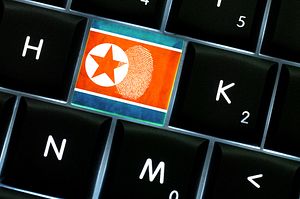South Korea has announced it will create a new presidential post handling cyber security. The move is seen an effort to better prepare Seoul for a possible cyber attack from North Korea.
Presidential spokesman Min Kyung-wook explained at a general briefing on March 31 that the creation of the new presidential post is designed to beef up the country’s control tower over cyber security.
When the computer networks of South Korean broadcasting companies and banks were paralyzed in 2013 in an attack attributed to North Korea, there was a rumor that South Korea’s Blue House was mulling a special post that would cyber security. The Blue House later denied those reports.
In 2014 there were additional cyber attacks: the attack on Sony Pictures, which the U.S. blamed on North Korea, and a separate attack on Korea Hydro & Nuclear Power Co., which Seoul concluded was also perpetrated by North Korea.
These events seem to have contributed to South Korea’s decision to open a new cyber post. There have been recent signs hinting that South Korea plans to take actions to defend against cyber attacks. For example, in recent months South Korean President Park Geun-hye has been stressing the importance of strengthening the country’s ability to confront cyber attacks.
Park pointed out on March 12 that the increasing threat of cyber attacks is endangering South Korea’s national security. In February, she also said that North Korea has the ability to plunge South Korean society into chaos and to manipulate public sentiment through cyber attacks. In addition, Park nominated Lim Jong-in, a professor at Korea University’s Graduate School of Information Security, as a security adviser for the Blue House, another sign that the government intended to pursue a new post devoted to cyber issues.
When describing North Korea’s “cyber terror force,” the most frequently used word is “unknown.” The details, including who belongs to the force and what, exactly it does, vary depending on the source. According to the 2014 white paper released by South Korea’s Defense Ministry, North Korea has expanded its cyber terror force to about 6,000 cyber agents, and it is actively using the force to paralyze South Korean society.
North Korea Intellectuals Solidarity (NKIS,) a Seoul-based think tank, wrote in its March report that it has been 16 years since North Korea established its cyber terror force and that support for the force has increased since Kim Jong-un came to power. NKIS added that members of North Korea’s cyber force are all talented people who went through a very competitive selection process, with some of them even having studied abroad.
North Korea has consistently denied all responsibility every time there has been a major cyber attack on South Korea.
With the establishment of the new cyber security post, the South Korean government seems determined to better deal with possible cyber attacks. North Korea has not commented on South Korea’s decision.

































